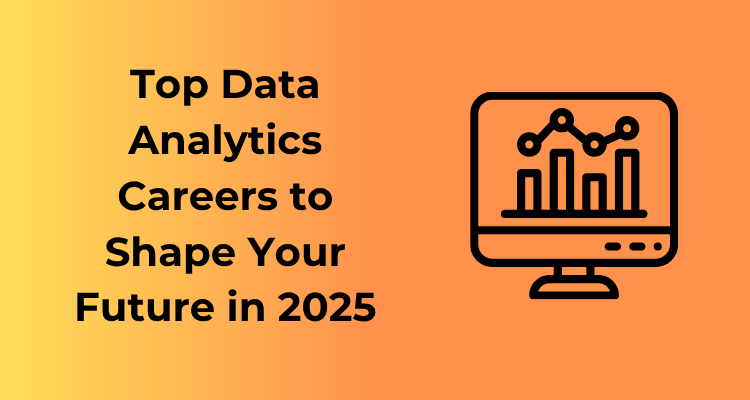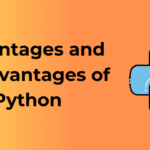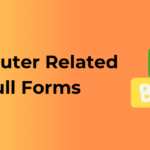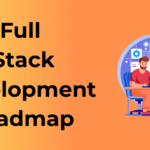Let’s dive into the exciting world of data analytics, starting with a role that forms the foundation of strategic decision-making: the Data Analyst. A data analyst wears many hats, but their ultimate goal is to make sense of numbers, trends, and patterns to craft insights that businesses can act on. So, what’s it like to be in this role, and why could it suit you?
What Does a Data Analyst Do?
Imagine you work for a retail company, and sales have dipped for a particular product line. A data analyst would step in, examine historical sales data, compare trends, and identify the reasons behind this decline. Could changing customer preferences or a new competitor be to blame? By investigating numbers tied to performance, marketing efforts, and customer feedback, data analysts interpret what’s happening under the hood and deliver solutions—or at least, the data narrative that leads teams toward solutions.
In practical terms, you’ll spend time with tools like Excel, SQL, Tableau, or Python to explore datasets and visualize findings. These insights help businesses improve efficiency, optimize processes, and make better investments. Simply put, you’re the bridge between numbers and decisions!
Is a Career as a Data Analyst Right for You?
If you’re the kind of person who loves solving puzzles, digging into details, and finding meaningful stories hidden within chaos, this could be your calling. Here are a few signs that being a data analyst might suit you:
- You’re curious: Asking “why” is second nature to you, and you love unraveling mysteries.
- You like problem-solving: Whether it’s working through complex logic or finding innovative answers, you thrive when there’s a challenge.
- You enjoy collaboration: Data analysts frequently work with marketing, finance, operations, and other teams to interpret results and strategize together.
Skills to Develop as a Data Analyst

Starting your career in this role means investing in learning some core tools and skill sets:
- Data Management: Knowing how to wrangle large datasets with tools like SQL is key!
- Visualization: Using platforms like Tableau or Power BI to make your findings digestible and actionable.
- Statistical Knowledge: Fundamental concepts like averages, distributions, or A/B testing will crop up in almost every analysis.
- Communication: You’re the translator bringing clarity to complex data for stakeholders, so strong presentation skills are invaluable.
Cracking Complex Data Problems as a Data Scientist
Ah, the enigmatic world of data science! If you enjoy unearthing hidden patterns in oceans of data and solving intricate puzzles, the role of a data scientist might just be your calling. In essence, this job revolves around making sense out of vast and sometimes messy data, and turning it into actionable insights. But there’s so much more to it!
What Does a Data Scientist Really Do?
Simply put, a data scientist takes raw data and transforms it into gold (well, information gold) using statistics, programming, and domain expertise. They analyze data trends, build machine learning models, and use predictive analytics to forecast outcomes. Their work helps businesses make smarter decisions and, more importantly, stay ahead of the competition.
Picture this scenario: A retail company wants to forecast demand during the holiday season. That’s where the data scientist swoops in, analyzes historical data, builds predictive models, and helps the company decide how much inventory to stock. Magic, right?
Skills Every Aspiring Data Scientist Needs
If you’re thinking this might be the right career path for you, here are some essential skills you’ll need to master:
- Statistical and Analytical Skills: It’s a numbers game! You’ll need to understand and apply statistical methods to glean insights.
- Programming Proficiency: Languages like Python, R, and SQL are the bread and butter of data scientists.
- Data Visualization Expertise: Tools like Tableau or Power BI help you tell a story through your findings.
- Machine Learning Knowledge: Want to predict the future? Learn algorithms and concepts like regression, clustering, and neural networks.
- Problem-Solving Abilities: Every project is a puzzle, and you’re the expert piecing it all together.
While these skills might seem daunting, start small and work your way up. A mix of online courses, practical projects, and tools like Kaggle can be your stepping stones.
Industries That Are Hungry for Data Scientists
One of the perks of being a data scientist is that your skills are transferable across many industries. Consider this:
- Healthcare: Predicting patient outcomes or optimizing hospital operations.
- Finance: Detecting fraud or forecasting economic trends.
- Retail: Personalizing customer experiences with recommendation systems.
- Sports: Analyzing player performance to build winning teams.
- Entertainment: Streaming platforms need data scientists to help suggest the next binge-worthy series.
Basically, every sector that collects data (spoiler: that’s almost everyone!) could leverage the expertise of a data scientist.
How to Land a Role as a Data Scientist
A great way to start is by building a strong portfolio that showcases your ability to handle real-world challenges. Participate in hackathons, contribute to open-source projects, or work on a personal project you’re passionate about (predicting soccer match outcomes? Why not?). Certifications, advanced degrees like a Master’s or Ph.D., and networking on platforms like LinkedIn can also give you a competitive edge. Remember, determination and curiosity will take you far!
Why Choose This Career?
Besides being ranked as one of the best jobs of the 21st century, data science offers an appealing blend of creativity and logic. You’ll work on exciting problems every day, contribute to meaningful projects, and, let’s be honest, the pay is often pretty gratifying too. It’s a career where passion for answers meets a thirst for challenges.
Driving Insights with BI Systems: The Business Intelligence Analyst
Think of a Business Intelligence (BI) Analyst as the detective of the corporate world. These talented professionals use data to solve mysteries, provide insights, and guide companies toward success. If you enjoy uncovering trends and creating stories from numbers while leveraging technology, this role might just excite you!
What Does a Business Intelligence Analyst Do?
At its core, the job is about transforming raw, often complicated data into meaningful and actionable insights. BI Analysts work closely with tools like dashboards, reporting platforms, database systems, and analytics software to help decision-makers interpret performance metrics and market trends.
Some of their key tasks include:
- Designing and maintaining data models that businesses rely on for decision-making.
- Developing intuitive dashboards that illustrate key data points clearly.
- Tracking and analyzing KPIs (Key Performance Indicators).
- Collaborating with cross-functional teams to pinpoint challenges and propose solutions.
In short, they’re like a bridge between heaps of complex data and the people making decisions based on it.
Skills to Shine as a BI Analyst
Wondering if you have what it takes to excel in this field? While technical expertise plays a big part, it’s not just about coding or crunching numbers. Here’s a rundown of the skills that count:
- Analytical Thinking: Turn chaos into calm by spotting trends and gaps.
- Communication: Being able to present your findings in a clear, digestible format is essential – remember, not everyone loves numbers as much as you do!
- Proficiency in BI Tools: Tools like Power BI, Tableau, or Looker are must-haves in your toolkit. Learning SQL is also beneficial in the data retrieval process.
- Business Acumen: It’s not just about numbers; understanding the goals and needs of the business you’re supporting will make your insights much more valuable.
- Critical Thinking: Not everything the data tells you will be accurate on the surface, so questioning and validating findings is key.
Why Choose a Career as a BI Analyst?
Let’s talk about the perks of becoming a Business Intelligence Analyst. First off, you’re in high demand. Nearly every industry, from finance to healthcare to retail, needs skilled BI analysts to help them outperform the competition by making smarter decisions backed by data. Increasing reliance on data-driven strategy makes this role future-proof!
What’s more, BI Analysts typically enjoy job satisfaction due to the visible impact of their work. From improving sales to optimizing operational costs, it’s rewarding to see your insights turn into actionable outcomes.
How to Get Started?
If you’re ready to dive into this field, start by building a strong foundation in data analysis. Take online courses or earn certifications in popular BI software. Develop a portfolio of sample dashboards or predictive analyses to showcase your skills during interviews.
Lastly, stay curious. The world of Business Intelligence is ever-evolving, and keeping up-to-date with the latest trends (like AI integration or predictive analytics) will give you a competitive edge.
Becoming a Business Intelligence Analyst means wearing many hats – from investigator to designer to storyteller. If the idea of combining creativity with logic appeals to you, this data analytics role might just be your next great adventure!
Data Engineering: Building the Backbone of Analytics
Alright, let’s dive into the world of Data Engineering, often hailed as the backbone of the entire data analytics industry. Ever wondered who’s behind the clean, organized, and easily accessible data sets that analysts and data scientists use to uncover jaw-dropping insights? That’s right—it’s the data engineers. These professionals are the unsung heroes building the pipelines that make all the magic happen!
The Role of a Data Engineer
At its core, a data engineer’s role is to manage, optimize, and oversee data infrastructure. This includes everything from designing systems that collect and organize data to creating frameworks that efficiently process and analyze it. Think of it as setting up the supply chain in a factory—without a strong pipeline to transport raw materials (data), there’s no way to create a final product (insights).
Some typical tasks of a data engineer include:
- Developing and maintaining databases and large-scale data processing systems.
- Creating and managing data pipelines that move data between systems.
- Ensuring that company data is clean, consistent, and accessible.
- Collaborating with data scientists to prepare data for machine learning models.
- Optimizing data-driven systems for high efficiency and scalability.
As the popularity of data-driven decision-making continues to grow, the demand for skilled data engineers is skyrocketing. They are the ones paving the way for seamless, powerful analytics across almost every industry you can think of—healthcare, finance, entertainment, and more.
What Skills Do You Need?
Becoming a data engineer requires a mix of technical know-how and problem-solving prowess. Here’s your recipe for success:
- Programming Skills: Proficiency in languages like Python, Java, or Scala is a must.
- Database Knowledge: You should be well-versed in SQL and NoSQL databases like PostgreSQL, MongoDB, or Cassandra.
- Data Tools: Familiarize yourself with big data technologies like Hadoop, Spark, or Kafka. These tools are critical for managing large-scale data.
- Cloud Computing: With the growing shift to cloud platforms, experience with services like AWS, Azure, or Google Cloud will give you a significant edge.
- Problem-Solving Mindset: You’ll be troubleshooting pipelines and optimizing systems, so an analytical approach is a must!
Why Data Engineers are in Hot Demand
Here’s the thing: Companies are generating terabytes of data every single day, and data engineers are needed to create the robust infrastructure required to make sense of it all. Without them, it’s like trying to run a library with books scattered everywhere—chaotic and unusable. Experts even predict that the market for skilled data engineers will only grow, making this one of the most sustainable and future-proof career choices in tech.
Let’s Talk Salary

Because their work is pivotal to business success, data engineering roles tend to come with lucrative salaries. In 2023, average annual salaries for data engineers ranged between $100,000 and $150,000 in the U.S., with opportunities for even higher compensation as you gain experience and expertise.
The Future is Bright!
If you love challenges, have a knack for problem-solving, and find satisfaction in building something essential, data engineering might just be your dream job. You’ll be working at the intersection of technology and innovation, helping businesses thrive while securing yourself a stable, rewarding career.
So, ready to engineer your way into the heart of the data world? As they say, every great insight starts with great infrastructure. Cheers to being the architect behind the analytics!
Exploring Human Behavior Patterns as a Marketing Data Specialist
When it comes to data analytics careers, the role of a Marketing Data Specialist stands out as an exciting blend of human psychology and hard numbers. As a marketing data expert, you’re essentially the person who deciphers what drives customer purchases, why certain campaigns succeed, and how companies can tailor their messages for maximum impact. Sounds fascinating, right? Let’s unpack what this role is all about and why it might be a great fit for you.
What Does a Marketing Data Specialist Do?
Imagine you’re behind the scenes of a blockbuster marketing campaign—assessing customer feedback, tracking performance metrics, and analyzing shopping trends. A Marketing Data Specialist dives headfirst into these data pools to find actionable insights, answering questions like:
- What type of customers engage the most with a product?
- How can campaigns be optimized to reach a larger audience?
- Which marketing channels (e.g., email, social media, ads) yield the best ROI?
By combining data-driven analytics with a strong understanding of consumer behavior, Marketing Data Specialists craft strategies that not only boost sales but also improve customer satisfaction.
The Skills You Need to Shine
If you’re eyeing this role, you’ll need both creativity and technical prowess. Skills like these are non-negotiable:
- Data Processing & Analysis: You’ll often work with tools like Excel, SQL, or Python to sift through mountains of raw data.
- Marketing Fundamentals: Understanding concepts like segmentation, brand positioning, and A/B testing is crucial.
- Predictive Analytics: Tools such as Google Analytics, Tableau, or other BI platforms help forecast trends.
- Effective Communication: It’s great to find a golden data nugget, but the real magic lies in your ability to communicate those insights to teams and stakeholders.
Don’t worry if you’re not an expert in all of these areas right away. Start small—take a free course on marketing principles or learn how to create dashboards with Tableau. Baby steps!
Day in the Life of a Marketing Data Specialist
No two days are alike in this role, and that’s what makes it so appealing! On any given day, you might:
- Review campaign performance metrics to identify areas of improvement.
- Create customer personas based on purchasing habits and demographic data.
- Collaborate with designers and content teams to refine messaging strategies.
- Report findings to leadership, highlighting trends they can’t miss.
This variety means you’re constantly learning and adapting, making room for creativity even while working with hard facts.
Why Pursue This Role?
So, why consider this path? For one, it’s in high demand. As more businesses focus on creating personalized marketing strategies, the need for skilled Marketing Data Specialists keeps growing. Plus, the pay can be quite competitive, with opportunities in nearly every industry—from retail to tech to non-profits.
But beyond that, it’s a chance to shape how brands connect with their audiences. Few things are as fulfilling as using data to predict human behavior and seeing the results unfold with every successful campaign.
Risk Analysts: Transform Numbers into Policies
Let’s dive into one of the most intriguing and impactful careers in the data analytics world: Risk Analysts! This role is all about using numbers to translate uncertainty into actionable strategies. Sounds cool, right? Let’s break it down further and explore what makes being a Risk Analyst such a rewarding and essential job for modern businesses.
What Does a Risk Analyst Do?
As a Risk Analyst, you’re like a detective for potential dangers lurking within a company’s financial, operational, or strategic plans. Your primary task is to analyze data, crunch numbers, and identify possible risks. These risks could range from market fluctuations and regulatory changes to cybersecurity threats or internal inefficiencies.
Once potential risks are identified, Risk Analysts work closely with leadership teams to design policies and strategies to mitigate or navigate those risks. It’s about being proactive—not reactive—when making high-stakes decisions. If you’re someone who loves solving puzzles, thrives under pressure, and enjoys working with data, this might just be your dream job!
Key Skills for Success
Now, let’s talk about what makes an excellent Risk Analyst. If you’re interested in this field, here are some valuable skills you’ll want to master:
- Data Interpretation: Strong analytical skills are a must. You’ll need to derive actionable insights from large, complex datasets.
- Statistical Knowledge: Familiarity with probability, modeling, and forecasting is crucial for quantifying risks accurately.
- Communication: It’s not enough to identify a risk; you need to explain it clearly to stakeholders who may not be data-savvy.
- Attention to Detail: Minor miscalculations can have major consequences, so being detail-oriented will help you succeed.
- Adaptability: Risks are ever-evolving! Companies value individuals who can pivot and respond to new challenges quickly.
Why Risk Analysts Are Vital
Picture the last major economic downturn or a high-profile corporate scandal. Often, these events stem from unrecognized or unmanaged risks. That’s where Risk Analysts come in—they’re the unsung heroes safeguarding companies from potential disasters.
In today’s unpredictable world, companies face a myriad of challenges, from climate change to emerging technologies. A Risk Analyst not only helps avoid pitfalls but also highlights opportunities for innovation by identifying areas where calculated risks could pay off big. No wonder this role is becoming increasingly in demand across industries such as finance, healthcare, retail, and technology!
Advice for Aspiring Risk Analysts
If this career has piqued your curiosity, here’s how to get started:
- Get Educated: A degree in finance, economics, statistics, or data science is a great start. Certifications like CFA or FRM can also boost your credentials.
- Hone Your Tools: Familiarity with basic tools like Excel and advanced tools like R, Python, or visualization platforms (Tableau, Power BI) will give you a competitive edge.
- Gain Experience: Internships, entry-level analyst roles, or projects in risk management will help you build credibility and confidence.
- Network: Join professional groups, attend webinars, or connect with experienced Risk Analysts to learn from their experiences.
Elevating Company Performance with Operations Data Roles
If there’s one challenge every company shares, it’s optimizing internal processes and maximizing efficiency. This is where Operations Data Roles step in, turning raw data into actionable strategies that drive systems, teams, and organizations forward. Let’s explore how these roles can make a difference and why they might just be the perfect fit for you!
What Are Operations Data Roles?
Operations Data professionals focus on finding ways to streamline workflows, reduce waste, and enhance productivity. They gather, process, and evaluate data from different aspects of organizational operations to ensure everything runs like a well-oiled machine. Think of them as modern-day Sherlock Holmes, uncovering hidden inefficiencies and using data to solve practical problems.
Key Responsibilities in Operations Data Roles
Curious what you’d be responsible for in a role like this? It’s varied and dynamic! Here are some typical tasks:
- Data Insight Generation: Analyze operational data to spot bottlenecks and inefficiencies.
- Performance Monitoring: Track indicators like cost, quality, and time to ensure goals are being met.
- Reporting: Compile findings into accessible formats to inform leaders and executives.
- Decision Support: Provide data-driven recommendations to improve company processes.
- Collaboration: Partner with departments like logistics, HR, and finance to align strategies.
What Makes Operations Data Roles Unique?
What sets this role apart from others in the analytics field is its direct impact on how an organization operates. While many analytics roles focus on external data like customer behavior or market trends, operations-focused professionals are all about improving how teams work within the company itself. It’s hands-on and strategic, often resulting in tangible outcomes like reduced costs or faster project completions.
Skills You’ll Need
Want to shine in this career path? Here’s what’s often on the wishlist for companies hiring in this space:
- Analytical Skills: You need a knack for interpreting data and spotting patterns others might miss.
- Technical Know-How: Familiarity with tools like Excel, SQL, Python, and operations management software is often essential.
- Problem-Solving Abilities: Be ready to tackle complex challenges and come up with innovative solutions.
- Communication Skills: Explaining your findings in a way that resonates with non-technical teams is just as important as the analysis itself.
Why You’ll Love This Role
Still unconvinced? Here are some bonus perks:
- Make a Real Impact: Few roles offer such immediate, visible changes in how an organization functions.
- Diverse Industries: From manufacturing to healthcare, almost every sector needs someone to enhance how they operate.
- Growth Opportunities: Operations roles often lead to leadership positions, thanks to their strategic focus.




















